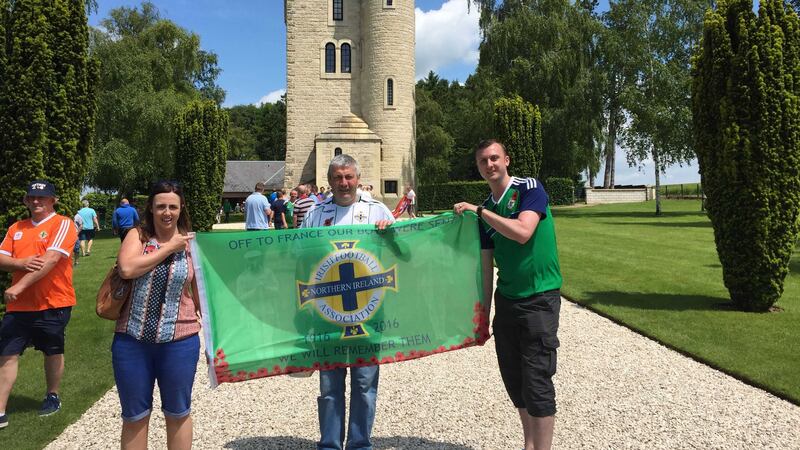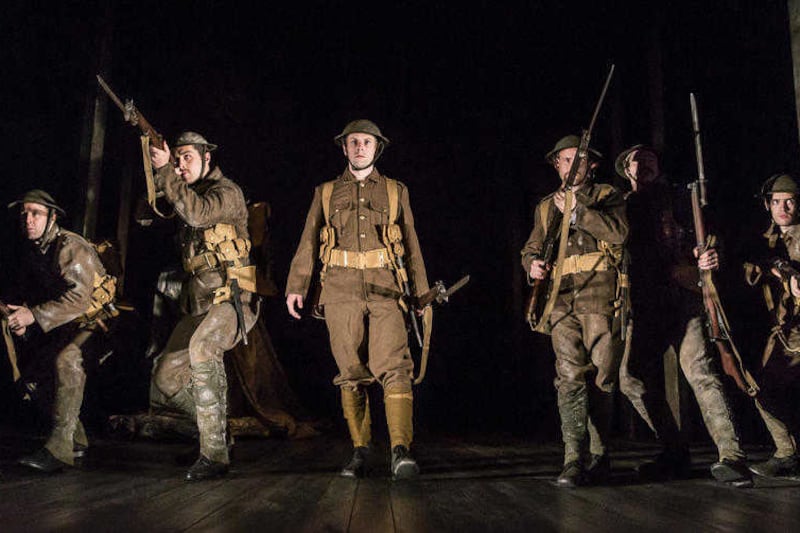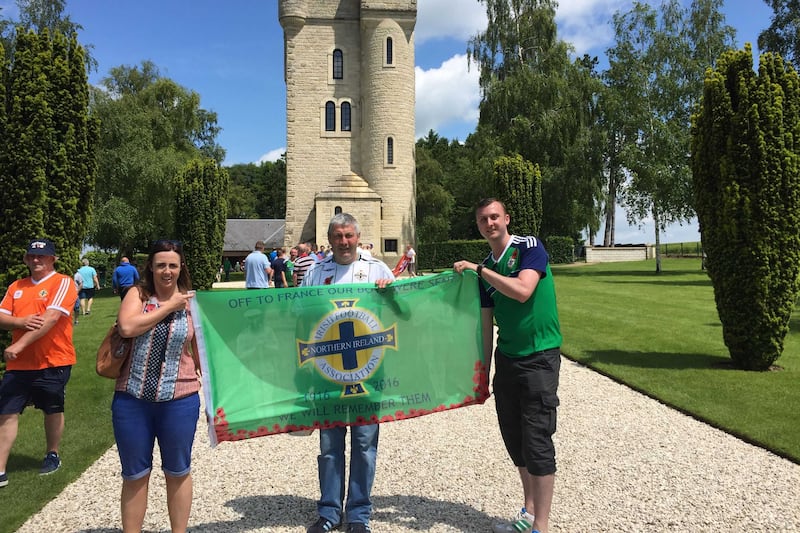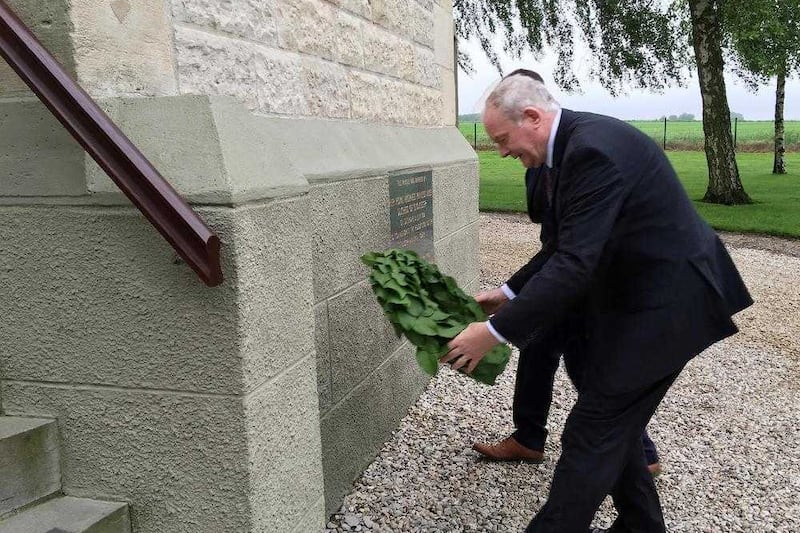NORTHERN Ireland football fans have made an emotional pilgrimage to a First World War battle site where thousands of Irish men died a century ago.
The Ulster Tower near the Somme was built on land gifted by the grateful French for the ill-fated attack troops made against overwhelming German defensive lines.
Supporters held a brief ceremony at the stone memorial complete with piper and prayers. They also played a football match against a local town.
Jim Spratt, committee member at the Amalgamation of Northern Irish Supporters' Clubs said: "We are here supporting Northern Ireland and we are doing them proud.
"These men did the world proud and we need to all remember that."
The centenary of the start of the July 1 Somme battle will be marked in a fortnight and dozens of supporters in Paris for Tuesday's crunch game against Germany made the trip north.
The 36th Ulster Division's initial attack near the Somme village of Thiepval was a success but the force could not hold territory gained.
The 16th Irish Division made up mainly of nationalists from throughout Ireland also took part.
At least 2,200 from the Ulster Division and around 1,500 from the Irish Division were confirmed dead during days of carnage involving faulty bombs and with failed communications, guides said.
Their shells landed on their own men and even the prevailing wind blew the gas back towards them.
Messengers carrying orders from headquarters to the front lines to retreat were killed and the troops never received them.
Stephen Kennedy, a minister in Lurgan in Co Armagh, said prayers.
He said: "There was a huge amount of blood and much of it was Ulster blood.
"Soldiers decided that they would lay down their lives for our freedom.
"They literally numbered their days to secure our future."
After days of partying the fans relaxed over tea and biscuits at the small interpretive centre, which contains wine bottles and rusted spoons recovered from the front.
They toured Thiepval Wood, from which Irish troops launched at times abortive attacks.
The bombs wobbled and never reached their targets, the Germans on the horizon, and often landed among their own men, according to guides.
A total of 2.5 million grenades were moved through Thiepval Wood, many using mules.
Among the relics recovered from archaeological digs were razors, combs and shaving brushes in perfect condition - a remnant of civilisation for men who spent days in the mud and squalor of the trenches.
Iodine used to treat infection, tins of corned beef and belt buckles were among the other traces of the soldiers retained.
Many of the dead and wounded were left in a bunker deep underground, according to records.
Trenches have been preserved in the condition they were in, complete with bags which would have been filled with the chalky soil to provide protection.






